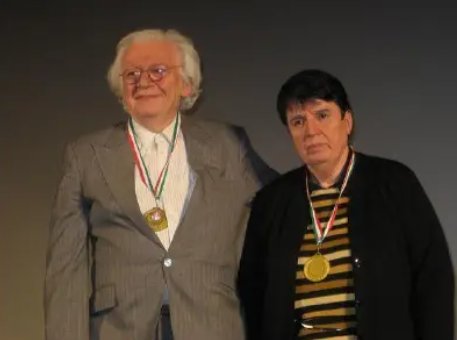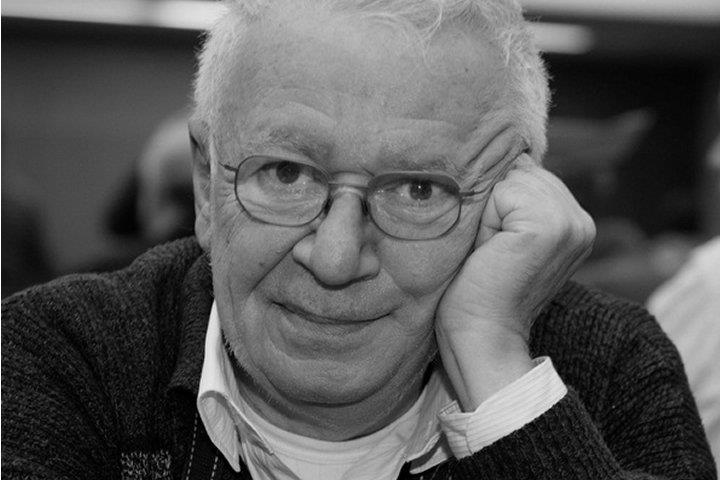Mihai Suba (1947-2026)
Mihai Şuba was born in Bucharest on 1 June 1947. His parents, Ernest, a professional soldier, and Victoria, an economist, separated early on. He stayed with his mother. While she was at work, he spent much of his childhood with his aunts.
He developed an interest in history and literature at an early age, as well as showing an aptitude for artistic pursuits. He enjoyed drawing and was a member of a semi-professional theatre group. After finishing school, he originally wanted to study art, but as this subject was highly politicised in communist Romania, he opted for mathematics, which was completely apolitical.
Mihai Şuba took up chess relatively late, at the age of about 20. He was originally passionate about bridge and continued to play it as a tournament player later in life. He learnt the rules of chess from the son of a local shoemaker. During his studies, he regularly visited the university chess club and often played in Bucharest’s parks, where strong amateurs and even some grandmasters would meet to play.
He made rapid progress, being selected for the Romanian team at the World University Team Championship in 1972. At the turn of 1972/73, he played in the Romanian national championships, finishing in the lower midfield. He went on to win the national championship three times, in 1980, 1981 and 1986.
In 1974, he took part in his first international tournament in Bucharest. In July of that year, he came third at the Lublin chess festival, behind Mihail Tal and Josef Pribyl. During the 1970s, Şuba participated in numerous tournaments in Romania and other socialist countries, typically placing in the middle of the field.
In 1978, he was selected for the Romanian national team and competed in the Chess Olympiad in Buenos Aires. Between 1978 and 1992, he represented Romania in six Chess Olympiads, as well as the 1985 World Team Championship and several European Team Championships.
In the early 1980s, Șuba achieved several top finishes in strong international tournaments, including Băile Herculane in 1982 (joint second with Gyula Sax). At the 1982 Interzonal Tournament in Las Palmas, he narrowly missed qualifying for the Candidates, finishing third behind Ribli and Smyslov. Șuba went on to win Dortmund in 1983 and the Berlin Summer in 1985 — sharing first place with Viktor Korchnoi but taking the title on tiebreak. He also shared first place in the 1985 Zonal Tournament in Prague (with József Pintér and Vlastimil Jansa) and won another strong event in Timișoara in 1987.
In his later years, Mihai Șuba regularly competed in senior tournaments. He shared first place at the 2008 World Senior Championship in Bad Zwischenahn with Larry Kaufman, winning silver on tiebreak. In 2011, he became European Senior Champion in Courmayeur.

FIDE awarded Mihai Șuba the title of International Master in 1975 and the title of Grandmaster in 1978.
In 1988, during a tournament in London, Șuba defected from Romania and requested political asylum in the United Kingdom. After the political changes in Romania, he returned briefly to his homeland in the early 1990s, but later settled in Spain, where he worked as a chess coach. He obtained Spanish citizenship in 2017.
In 2007, a commemorative tournament was held in Bazna to mark his 60th birthday, bringing together many of his contemporaries and leading players from the 1980s.
At his peak, Mihai Șuba was regarded as one of the foremost experts on the so-called “Hedgehog” structure, which can arise from various openings. In his influential books Dynamic Chess Strategy and The Hedgehog, he explored in depth the strategic ideas underlying this system.
At first glance, the Hedgehog setup might appear somewhat passive but in fact Black is always waiting to launch a counterattack. Let Yannick Pelletier provide you with a complete repertoire against the English and the Reti!
Exceptionally gifted in languages, Șuba could converse fluently in Romanian, Russian, Serbo-Croatian, English, Spanish, Italian, and French. He was married twice and had two sons from his first marriage. In his later years, he lived alone.
Mihai Șuba passed away on Sunday, 26 October 2025, at the age of 78.
In this two-part course the emphasis will be on typical pawn-structures. “Open and half-open files” and “the pawn chain” will be covered extensively on this video course. New: now also available as stream!
